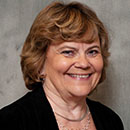Big Ed-Tech Industry Network Names New Leader

Leadership at the Education Technology Industry Network is changing this week, as Karen Billings retires and Chris Lohse takes the reins as senior vice president and managing director of the 200-member organization.
Billings has been at the helm of the ed-tech division of the Software & Information and Industry Association or SIIA, for 14 years, overseeing its growth as a proliferation of new companies representing a range of new types of products emerged in the industry.
Lohse, who began his career as a chemistry, biology and physics teacher in 2000, most recently held positions as vice president of government affairs at Renaissance Learning and vice president of strategic affairs at Pearson.
Before working in the private sector, Lohse served on a leadership team for the Council of Chief State School Officers, where he oversaw the organization’s research and development discovery process.
A top priority for Lohse will be “helping the education community think through how they want to take advantage of new opportunities” arising from the Every Student Succeeds Act, the sweeping federal education law signed last December, he said in a phone interview.
State education agencies and districts are looking for insights from a number of different sources as they implement the law, but education companies are typically not among them, said Lohse, who wants ETIN to “build a forum” for conversations between the public and private sector for this purpose. “A lot of our companies are hesitant about engaging in that policy conversation, and uncertain how to navigate it,” he said, because of “distrust in the public sector about engaging with the private sector.”
Another priority will be a focus on efficacy of ed-tech products, and promoting more dialogue between academic researchers and the commercial development community. The goal would be to “build a culture in this community of best-in-class, leading-edge research efforts,” he told a meeting of the ETIN membership earlier this month.
“The academic community needs access to data,” Lohse said in the phone interview, and the private sector could help facilitate that with public sector approval. Companies could gain more insights from the learning sciences, too, he said.
A long-term strategic objective will be elevating the reputation of the ed-tech industry in the eyes of the education community. “We have a sector that’s not incredibly well-regarded by its client base, its customers,” said Lohse. “A lot of educators don’t rank their provider base very high.” To address this issue, he said the industry might need better communication, but also to make substantive changes over time.
Billings Sees Changing Landscape
Outgoing vice president Billings capped a more than 40-year career in the education technology at the organization. Previously, she held positions in management,

development, marketing, sales and classroom teaching. As an example of how much change she has seen, Billings pointed to the proliferation of learning management systems. “We used to have three or four LMSes,” she said. “Now, people talk about hundreds of them.”
Lohse credited Billings with providing a legacy of “building support, resources, and camaraderie” for a diverse network of education companies, which he said represents “an enduring and significant contribution to education.”
Billings said the biggest challenge for Lohse will be what any nonprofit organization faces: “to always do more as the number of members grow, and the diversity of the membership grows each year, but still with limited resources.”
That’s a challenge reflected in the education technology organization’s membership. “All of our companies do the same thing: trying to build revenue and profitability with limited staff and limited budgets,” she said.
Meeting the needs of so many different types of companies has meant, for one thing, an ever-growing number of categories for the organization’s annual CODiE awards, which recognize outstanding ed-tech products based on selections by educators who volunteer to review them. For 2017, 20 new categories were added, including best ed-tech solutions for social-emotional development and for coding and computational-thinking.
With the changing landscape, the education technology industry network is banking on Lohse’s diverse experiences in different sectors of education.
“Chris is a true thought leader on the role of technology in propelling student achievement,” said Ken Wasch, president of SIIA in the formal announcement.
See also:
- ESSA: A Guide for K-12 Companies
- Education Businesses Take on K-12 Market Complexities
- To Succeed, Ed Tech Must Be Easy to Use, Good Fit, Analyst Says
- SIIA Ed-Tech Network Expands With Asset Sale of Education Industry Association
- Ed-Tech Software Group Objects to Messages in Feds’ #GoOpen Campaign
- How to Build a Research Based for Your K-12 Product
